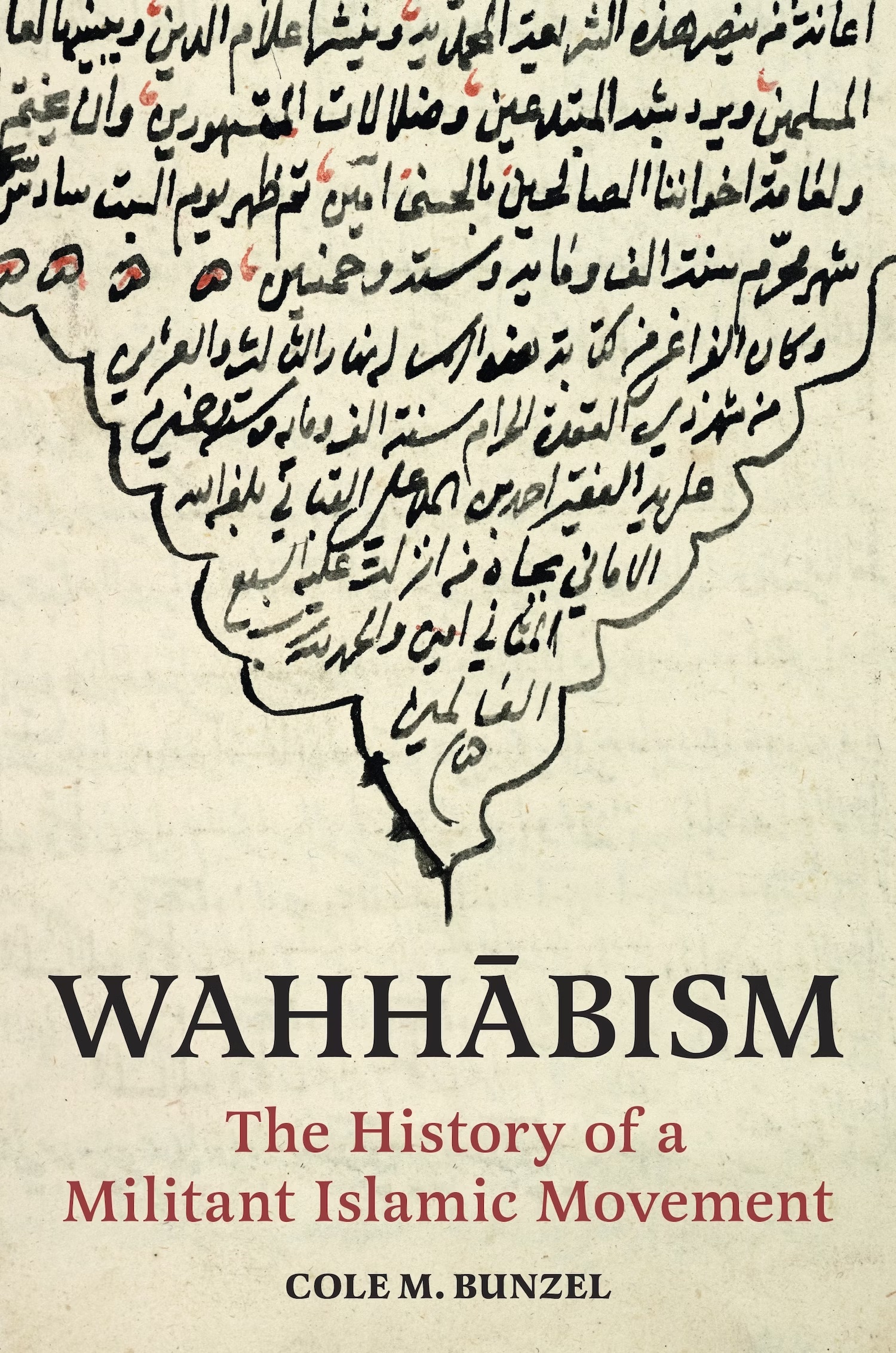Webinar: Wahhābism: The History of a Militant Islamic Movement
Dr. Cole Bunzel discussed his groundbreaking book Wahhābism: The History of a Militant Islamic Movement on September 11, 2023 at 1:00 pm (ET).
 Dr. Cole Bunzel is a Hoover Fellow at the Hoover Institution, Stanford University and Book Review Editor for ASMEA's flagship publication the Journal of the Middle East and Africa. A historian of the contemporary Middle East, he specializes in the Arabian Peninsula, Islamic theology and law, and modern Islamic radicalism. He has written extensively on the history of Saudi Arabia and the modern Sunni jihadi movement known as Jihadi Salafism. Bunzel received an M.A. in international relations from the Johns Hopkins School of Advanced International Studies and a B.A. and Ph.D. in Near Eastern Studies from Princeton University. He has been a research fellow in Islamic law and civilization at Yale Law School and is a nonresident fellow at the George Washington University Program on Extremism. Dr. Cole Bunzel is a Hoover Fellow at the Hoover Institution, Stanford University and Book Review Editor for ASMEA's flagship publication the Journal of the Middle East and Africa. A historian of the contemporary Middle East, he specializes in the Arabian Peninsula, Islamic theology and law, and modern Islamic radicalism. He has written extensively on the history of Saudi Arabia and the modern Sunni jihadi movement known as Jihadi Salafism. Bunzel received an M.A. in international relations from the Johns Hopkins School of Advanced International Studies and a B.A. and Ph.D. in Near Eastern Studies from Princeton University. He has been a research fellow in Islamic law and civilization at Yale Law School and is a nonresident fellow at the George Washington University Program on Extremism.
 In this webinar, Bunzel will discuss his book, Wahhābism: The History of a Militant Islamic Movement. In the mid-eighteenth century, a controversial Islamic movement arose in the central Arabian region of Najd that forever changed the political landscape of the Arabian Peninsula and the history of Islamic thought. Its founder, Muḥammad ibn ʿAbd al-Wahhāb, taught that most professed Muslims were polytheists due to their veneration of Islamic saints at tombs and gravesites. He preached that true Muslims, those who worship God alone, must show hatred and enmity toward these polytheists and fight them in jihād. Cole Bunzel tells the story of Wahhābism from its emergence in the 1740s to its taming and coopting by the modern Saudi state in the 1920s, and shows how its legacy endures in the ideologies of al-Qāʿida and the Islamic State. In this webinar, Bunzel will discuss his book, Wahhābism: The History of a Militant Islamic Movement. In the mid-eighteenth century, a controversial Islamic movement arose in the central Arabian region of Najd that forever changed the political landscape of the Arabian Peninsula and the history of Islamic thought. Its founder, Muḥammad ibn ʿAbd al-Wahhāb, taught that most professed Muslims were polytheists due to their veneration of Islamic saints at tombs and gravesites. He preached that true Muslims, those who worship God alone, must show hatred and enmity toward these polytheists and fight them in jihād. Cole Bunzel tells the story of Wahhābism from its emergence in the 1740s to its taming and coopting by the modern Saudi state in the 1920s, and shows how its legacy endures in the ideologies of al-Qāʿida and the Islamic State.
Drawing on a wealth of primary source materials, Bunzel traces the origins of Wahhābī doctrine to the religious thought of medieval theologian Ibn Taymiyya and examines its development through several generations of Wahhābī scholars. While widely seen as heretical and schismatic, the movement nonetheless flourished in central Arabia, spreading across the peninsula under the political authority of the Āl Suʿūd dynasty until the invading Egyptian army crushed it in 1818. The militant Wahhābī ethos, however, persisted well into the early twentieth century, when the Saudi kingdom used Wahhābism to bolster its legitimacy.
This incisive history is the definitive account of a militant Islamic movement founded on enmity toward non-Wahhābī Muslims and that is still with us today in the violent doctrines of Sunni jihādīs.
Read a review of the book in History Today.
|


 Dr. Cole Bunzel is a Hoover Fellow at the Hoover Institution, Stanford University and Book Review Editor for ASMEA's flagship publication the Journal of the Middle East and Africa.
Dr. Cole Bunzel is a Hoover Fellow at the Hoover Institution, Stanford University and Book Review Editor for ASMEA's flagship publication the Journal of the Middle East and Africa.  In this webinar, Bunzel will discuss his book, Wahhābism: The History of a Militant Islamic Movement.
In this webinar, Bunzel will discuss his book, Wahhābism: The History of a Militant Islamic Movement.